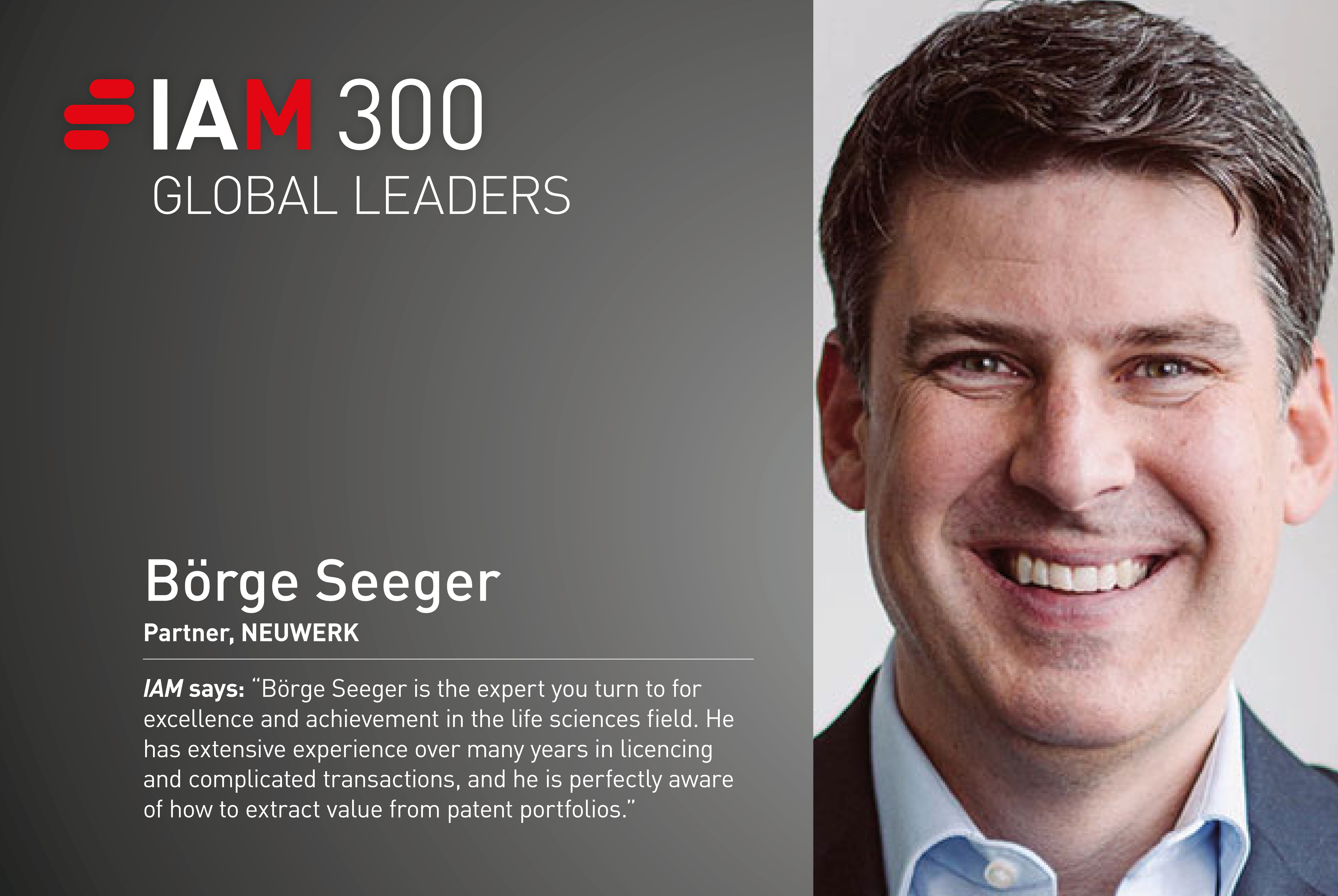Börge Seeger
What advice would you give to others considering a career in IP law?
My advice to aspiring IP and IT colleagues is always the same. Look at our subject holistically – do not focus too much and too early on just one (small) specialty within the broad field of IT or intellectual property. Recognise the many commonalities and repetitions, whether you are dealing with patent law, copyright law or trade secret protection. For those who do not work in intellectual property or IT, our field is a special matter anyway.
From a data protection perspective, what are some of the biggest changes you have seen in the AI ecosystem over the last 12 months?
That is a great question! AI (particularly generative AI) is fundamentally changing the legal landscape at the moment, and that includes the data protection world. For one, we are seeing an increase in regulation; the European Union is said to want to pass new AI legislation by the end of this year, which will introduce different rules for different AI risk levels.
Second, the ethics of AI and data use have gained more attention. Organisations are recognising the need to address bias, fairness, accountability and transparency in AI algorithms and decision-making processes. Ethical frameworks and guidelines for AI development and deployment have been proposed by various organisations and industry groups.
Finally, as AI systems handle sensitive data, there has been an increased emphasis on implementing stronger technical safeguards. Techniques such as federated learning and differential privacy have gained traction, allowing AI models to be trained on decentralised data without exposing individual-level information.
You are a member of several institutions, including the German-American Lawyers Association (GALA), the German Society for Legal Informatics (DGRI) and the Licensing Executive Society (LES). What valuable lessons have you taken from your time with these groups?
I find the work that GALA, DGRI and LES are doing extremely valuable. The diverse insights and lifelong connections I have gained from these organisations have truly enriched my professional life – be it in terms of improving my cross-cultural understanding, deepening my appreciation for the intricate art of negotiation or embracing innovative, IT-driven approaches to complex legal challenges.
Further, being a member of these institutions has helped me foster meaningful connections with professionals who share my passion for law, technology and innovation. I love the networking opportunities, seminars and conferences organised by these groups – they are like a goldmine of information. All of this has definitely helped me grow and improve as a legal professional.
If you could change one thing about the German licensing landscape, what would it be and do you think it is likely to happen?
I would focus on the biotech and pharma field. If I were to change one thing, it would be to establish a more streamlined and supportive framework for licensing that encourages investment and innovation. The key challenge in the German biotech market is the chronic underfunding that hampers growth and development of this vital sector. To address this issue, a strategic approach to licensing could play a crucial role. To me, that would include:
- flexible licensing mechanisms (from tech transfer agreements to joint ventures) to help bridge the funding gap;
- introducing tax incentives that could boost investment in biotech start-ups and attract more private funding; and
- fostering stronger collaborations between public research institutions and private entities – Germany could leverage its particular strengths in these sectors to drive R&D and commercialisation of biotech products.
How likely is this to happen? Frankly, I do not know. Success would probably require the concerted efforts of policymakers, industry players and academia working together to create an environment conducive to growth and investment in biotechnology.
How is the launch of the UPC affecting European IP strategies so far?
One significant development is the trend towards more streamlined litigation. With the UPC aiming to establish a unified platform for patent litigation across multiple EU countries, patent holders now have the opportunity to enforce their rights in a single forum. This is proving to be a game-changer, simplifying the process and enabling more cost-effective strategies for handling patent disputes that span different jurisdictions. Moreover, the launch of the UPC is introducing a new level of consistency and predictability. The UPC's decisions will have legal effect across all participating member states. This shift is set to lead to greater uniformity in how patent laws are interpreted and applied, which will ultimately result in more reliable outcomes for rights holders.
Börge Seeger
Partner
[email protected]
Börge Seeger is a partner at NEUWERK and heads the life sciences group. He is a German-qualified lawyer and certified licensing professional. His practice covers all aspects of IP and IT law, including IP licensing and partnering, technology transfers, joint ventures and alliances, software and IT outsourcings and data protection and privacy, as well as complex commercial law matters. Mr Seeger has extensive experience in assisting clients from the life sciences and healthcare sector.
